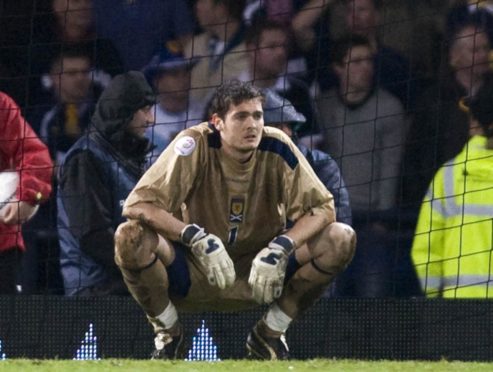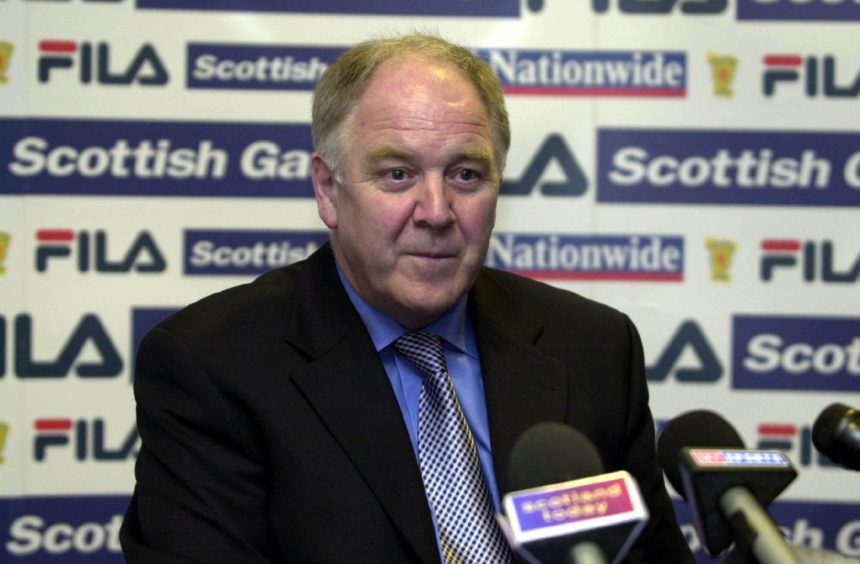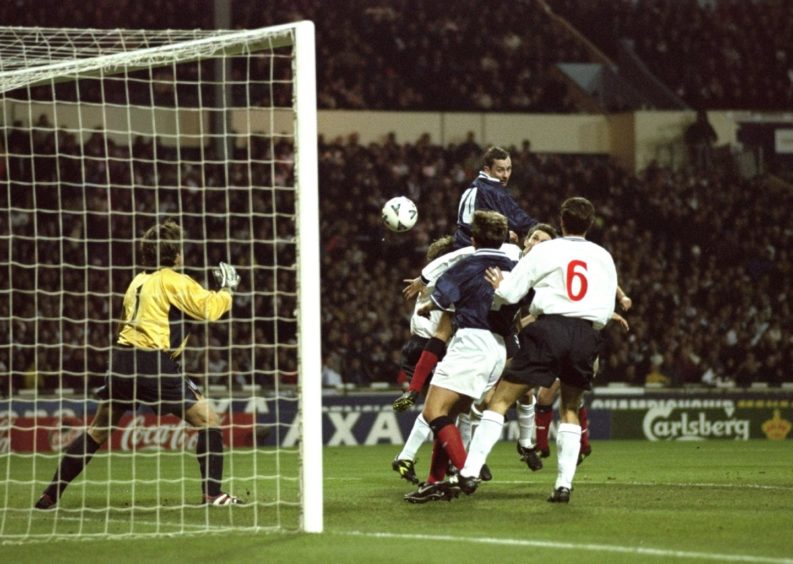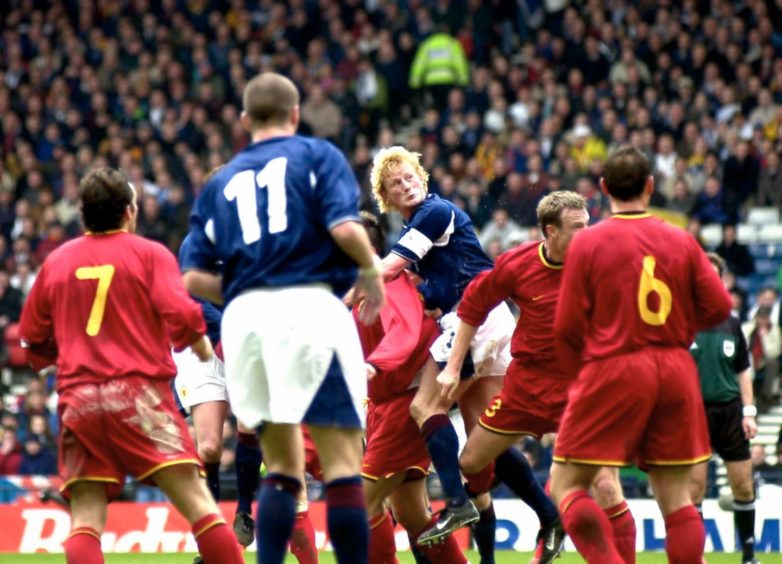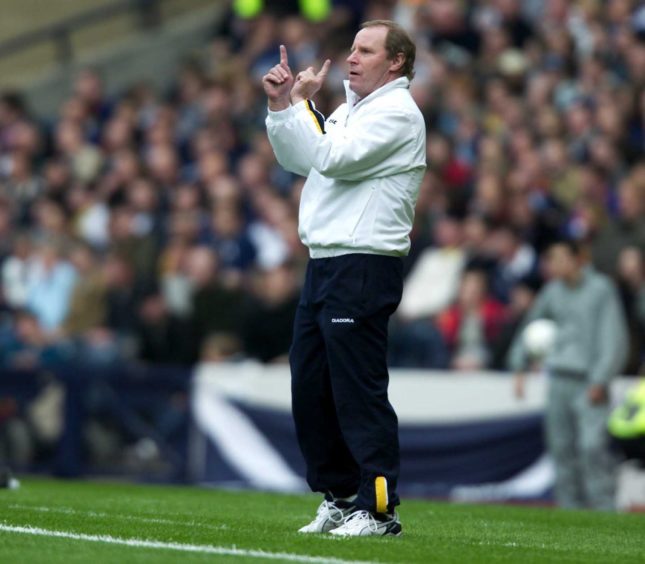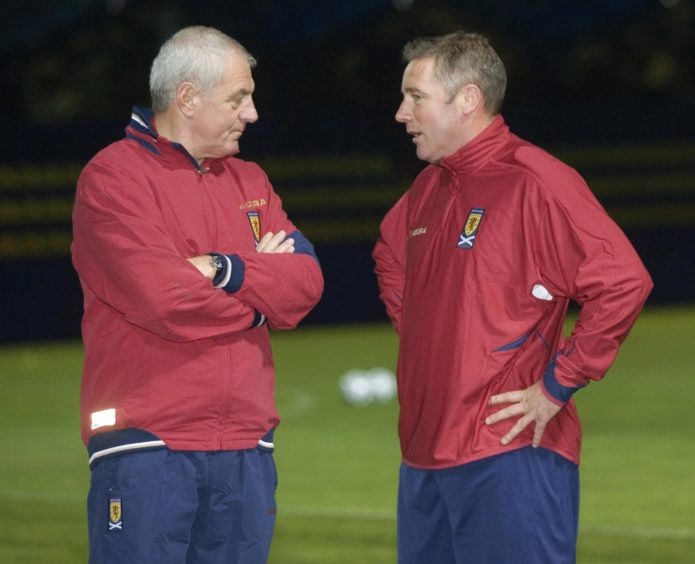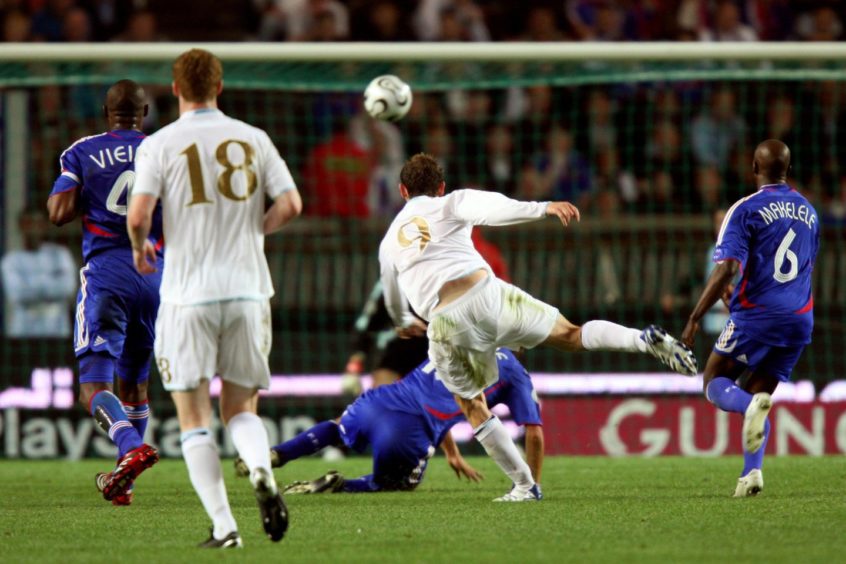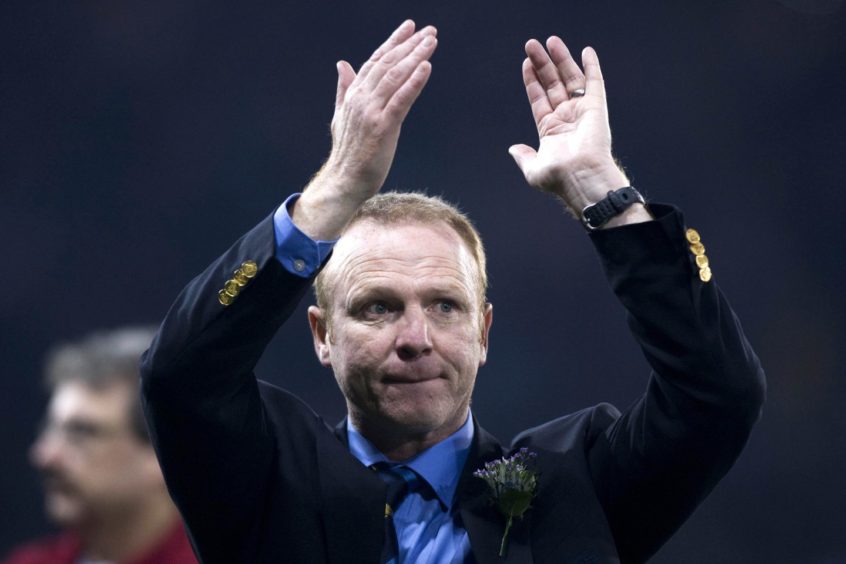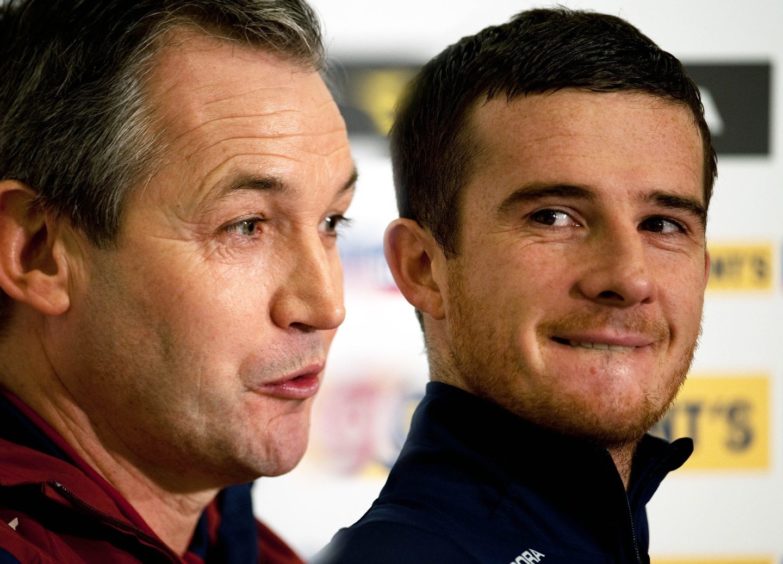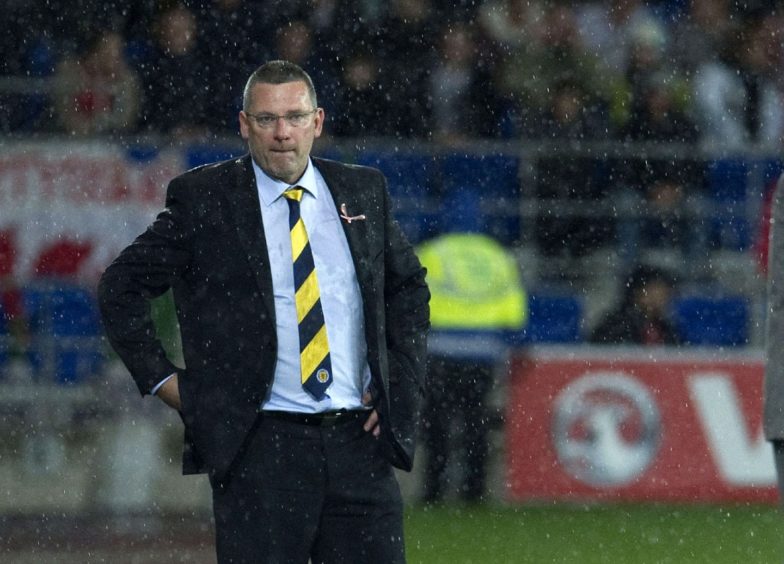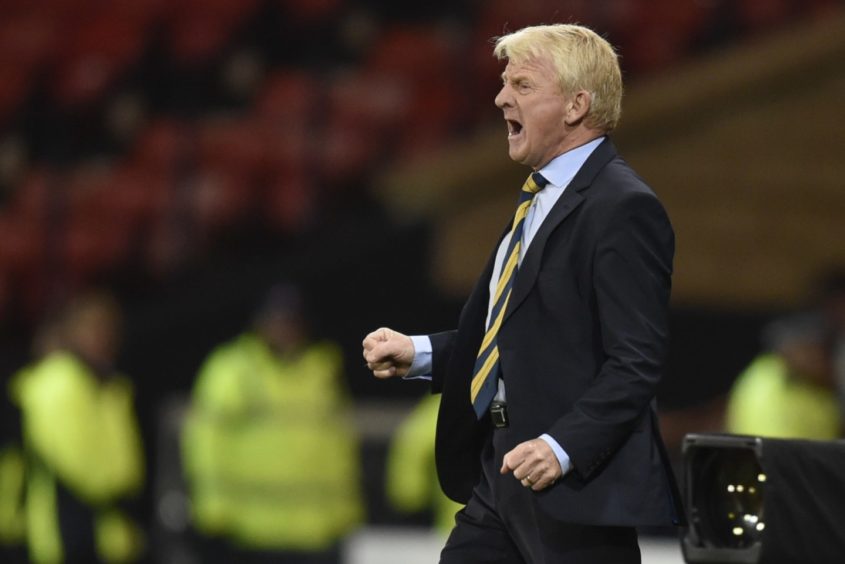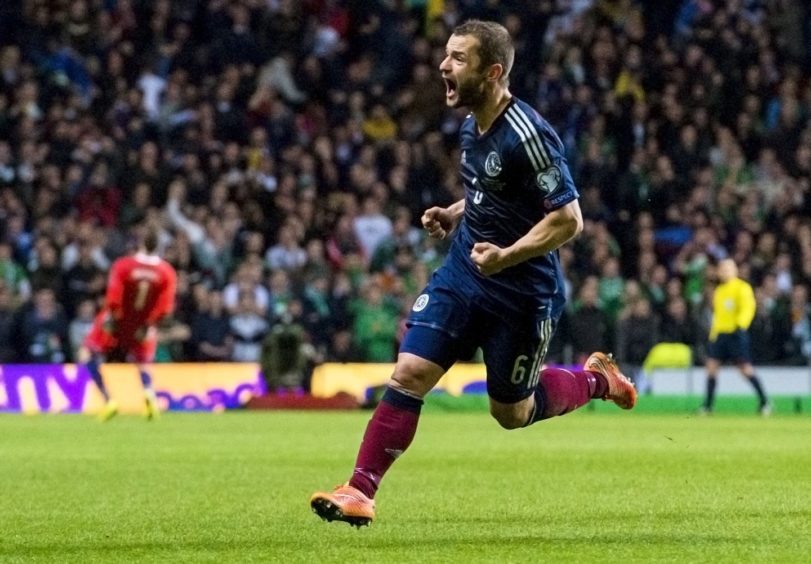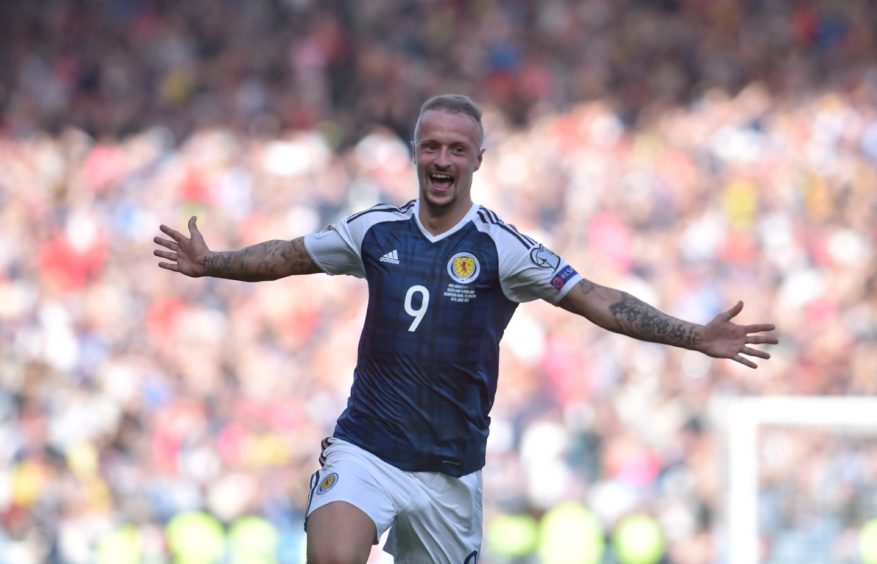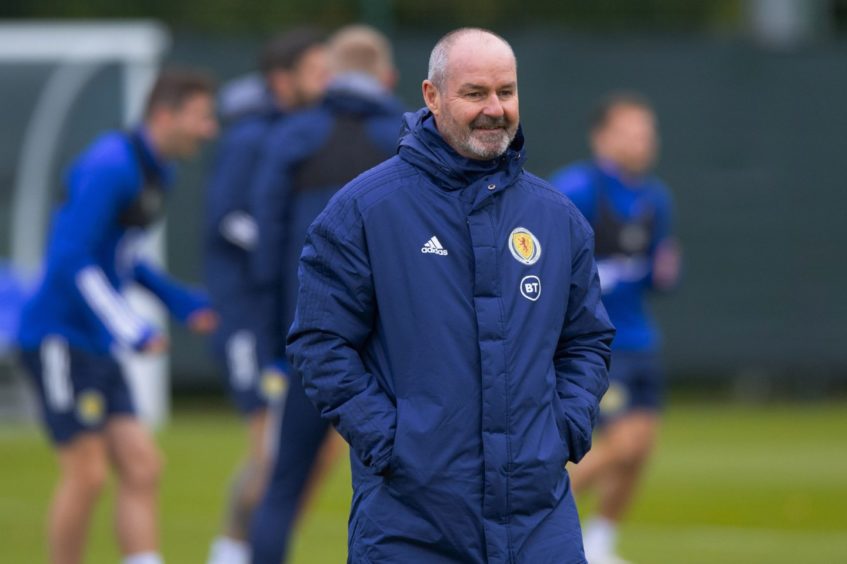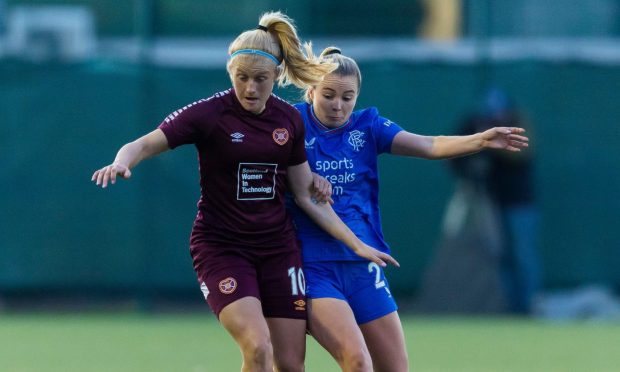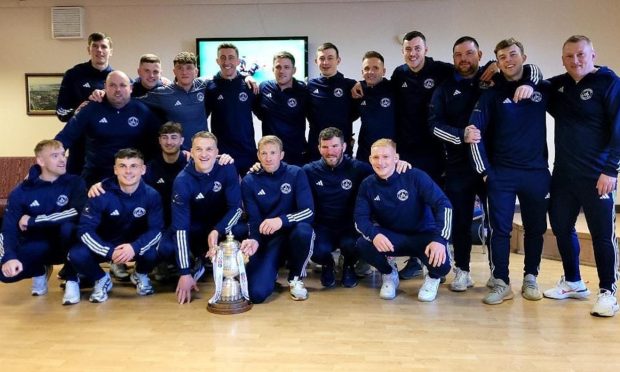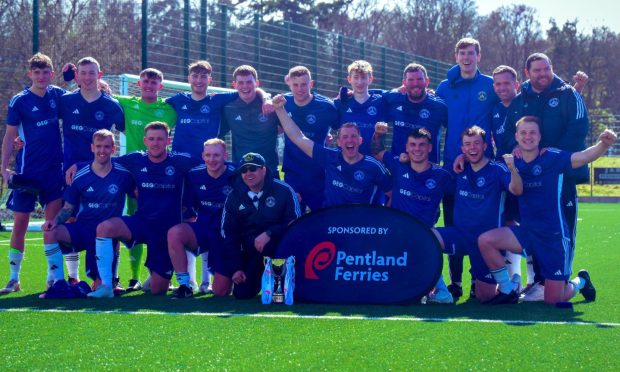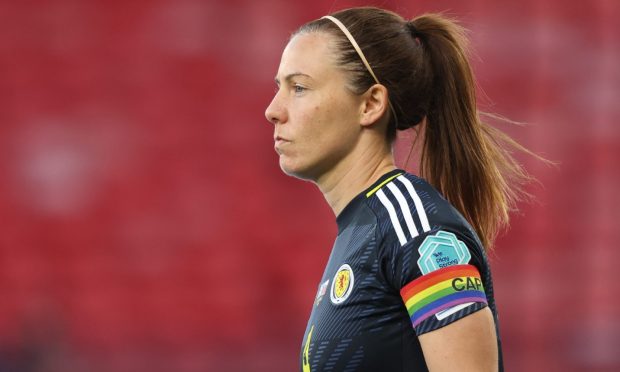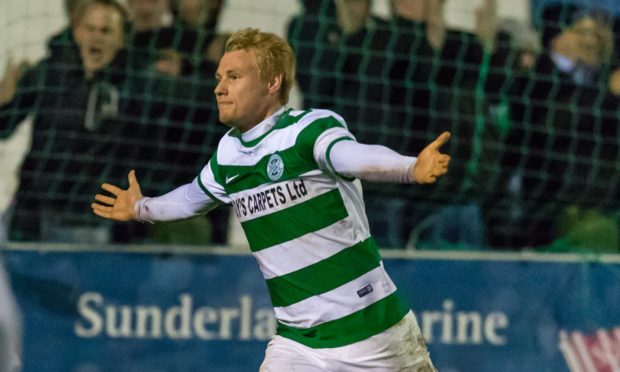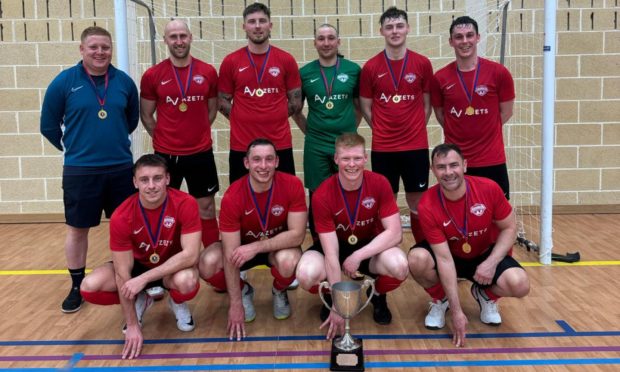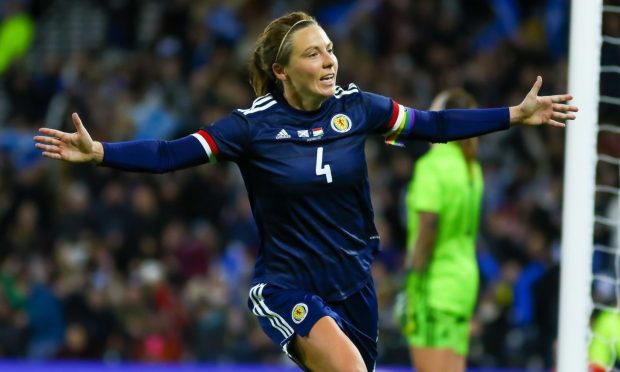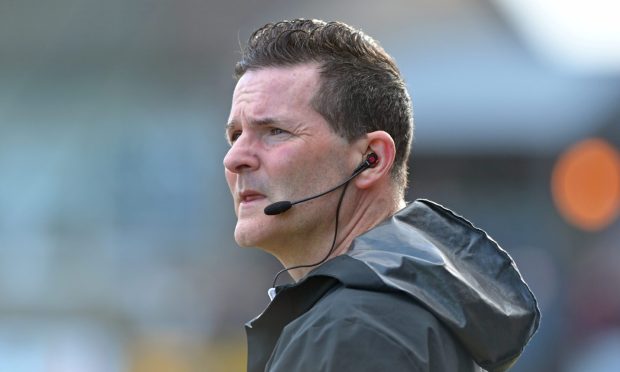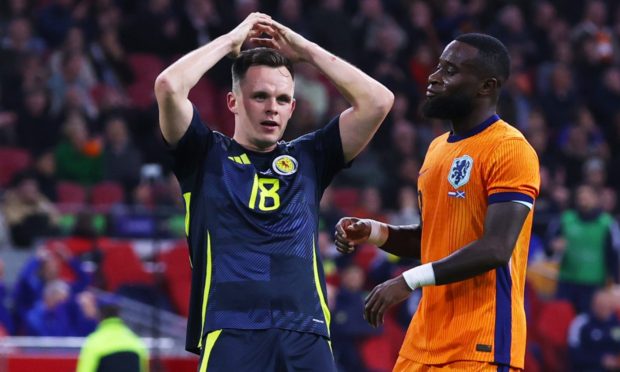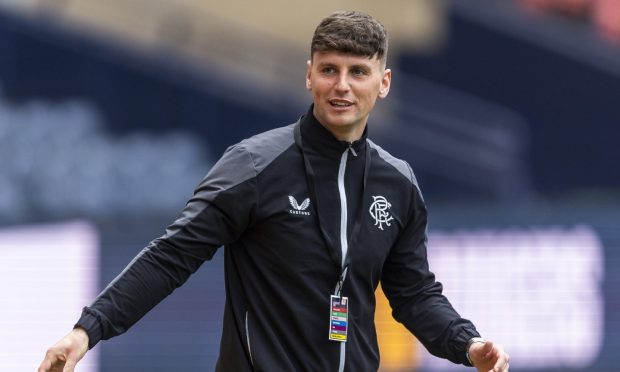Beating Serbia tonight will earn Scotland a major tournament return at next year’s European Championships.
The national team hasn’t featured at a finals since the 1998 World Cup in France.
Over the last 22 years there have been close shaves, as well as calamitous qualifying campaigns.
Here we look at what went wrong for the Scots in those previous attempts to reach a tournament.
European Championships 2000
This remains the closest Scotland have been to qualifying since France 98.
Craig Brown guided the Dark Blues to second in Group Nine, with 18 points, but it was the Czech Republic who dominated the section, winning all 10 games to qualify for the finals in the Netherlands and Belgium.
The Scots did secure a play-off spot and were paired against England.
In the first leg at Hampden, it was the Auld Enemy who seized the initiative with Paul Scholes’ first half brace putting them in command.
Billy Dodds hit the crossbar for Scotland, but they headed to Wembley with a mountain to climb in the second leg.
But climb it they almost did. Don Hutchison’s towering header from Neil McCann’s cross six minutes before half-time gave the Tartan Army hope.
In the closing stages, Scotland came so close to levelling the tie and forcing extra-time when David Seaman’s stunning save denied Christian Dailly at point-blank range.
World Cup 2002
It was Brown’s final campaign as Scotland manager as the national side were edged out in a tight qualifying group.
They took six points out of six from double headers against Latvia and San Marino and drew home and away with Croatia.
But it was the fixtures against Belgium that defined Scotland’s chance of reaching the World Cup in Japan and South Korea.
Facing the Belgians at Hampden in March 2001, the Scots were 2-0 up inside half an hour courtesy of a double from Dodds.
The second from the penalty spot also led to the sending off of Eric Deflandre, but Scotland could not make the game safe, with Marc Wilmots’ goal for the visitors early in the second period setting up a tense last half hour.
The Tartan Army’s nightmare became reality in injury time when Daniel Van Buyten headed home an equaliser.
A 2-0 defeat to Belgium in Brussels six months later meant Van Buyten’s goal took on more significance as Scotland missed out on a play-off spot by two points.
European Championships 2004
Despite the embarrassment of starting the campaign with a 2-2 draw against the Faroe Islands, Scotland under the stewardship of Berti Vogts managed to finish second behind Germany in Group Five.
Darren Fletcher’s winner in the final qualifier against Lithuania combined with the Germans defeating Iceland earned the Scots a play-off place.
A two-legged tie against a star-studded Netherlands side stood between Scotland and qualification for the finals in Portugal.
James McFadden’s strike at Hampden secured a 1-0 victory in the first leg and more than 12,000 members of the Tartan Army descended on Amsterdam for the return.
However, things unravelled badly for the Scots. Wesley Sneijder quickly restored parity on aggregate before headers from Andre Ooijer and Ruud van Nistelrooy put the Dutch in control.
Two more from Van Nistelrooy and another from Frank de Boer completed the rout.
World Cup 2006
Scotland’s hope of reaching the finals in Germany were as good as over after the first four games of of Group 5.
The national team collected just two points from those fixtures. A draw at home to Slovenia followed by defeat to Norway at Hampden and a draw in Moldova led to the resignation of Vogts.
Walter Smith was brought in as manager and results did improve towards the end of the campaign.
Scotland defeated Norway and Slovenia away from home and drew with Italy at Hampden, but they still finished a distant third in the section.
European Championships 2008
Plunged into a tough group containing World Cup finalists Italy and France as well as the Ukraine, Scotland came agonisingly close to qualifying.
After expected wins over the Faroe Islands and Lithuania, the Scots stunned the French at Hampden, courtesy of Gary Caldwell’s goal, to start with three wins from three.
The next qualifier – a 2-0 loss in Ukraine – was Smith’s last as manager as he returned to Rangers in January 2007, with Gothenburg Great Alex McLeish appointed.
Although they lost away to Italy, the Dark Blues kept up the momentum with wins over Georgia, the Faroes and Lithuania.
Then, in September 2007, came a victory and a goal that ranks alongside any scored by a Scotland player.
James McFadden’s 35-yard howitzer secured a 1-0 win over France in the Parc Des Princes. Following up that stunning success with a home triumph against Ukraine left the Scots sitting top of Group B with two games left.
The first against Georgia in Tbilisi turned into a nightmarish evening as the home side won 2-0.
That left McLeish’s men needing to beat Italy at Hampden to reach the finals. They made the worst possible start, with Luca Toni stabbing the world champions in front in the second minute.
Scotland rallied and, after having a number of chances, captain Barry Ferguson bundled home an equaliser shortly after the hour.
They still needed a winner and pushed hard for it, but their hopes were cruelly killed off in the closing stages when Spanish referee Manuel Mejuto Gonzalez inexplicably awarded Italy a free-kick when Giorgio Chiellini had barged Alan Hutton to the ground.
From Andrea Pirlo’s delivery, Christian Panucci headed home the winner. After such an impressive qualifying campaign, coming unstuck in the final two games was particularly galling.
World Cup 2010
There was a new man in the dugout for this campaign as McLeish returned to club management with Birmingham City.
George Burley was charged with securing a place the finals in South Africa.
A stuttering start to the campaign hindered Scotland’s chances. They were defeated by Macedonia in the Group 9 opener in Skopje.
A narrow win over Iceland was followed by a 0-0 draw with Norway – our main rivals for second in the section – at Hampden.
It’s a fixture remembered for one moment – Chris Iwelumo’s miss – and also led to Kris Boyd opting not to play for the national side under Burley.
Controversy followed after defeat in the Netherlands in the next qualifier. After the squad had returned to Scotland, captain Ferguson and goalkeeper Allan McGregor were disciplined for an early morning drinking session.
The duo were benched for the next qualifier against Iceland and after being photographed making V-signs from the bench, they were banned from playing for Scotland for life, although these suspensions were later revoked.
A chastening 4-0 defeat to the Norwegians in Oslo left the Scots needing to defeat Macedonia and the Netherlands at Hampden to secure a play-off spot.
It was something they couldn’t achieve, after beating Macedonia, Eljero Elia’s late goal gave the Dutch victory in the final qualifier.
Scotland finished the group in third with 10 points and were left to rue missed opportunities yet again, when another three points would have been good enough to finish second and secure a play-off spot as one the eight best group runners-up.
European Championships 2012
Burley didn’t survive his failed World Cup campaign, with Craig Levein at helm come qualifying for Euro 2012.
But, again, a stuttering started didn’t help Scotland’s chances. They could only draw with Lithuania in Kaunas before a 97th minute Stephen McManus goal avoided the embarrassment of points being dropped at home to minnows Liechtenstein.
The next qualifier was to define Levein’s tenure in charge as he played a 4-6-0 formation away from home against the Czech Republic with the experiment heavily criticised as Scotland went down 1-0.
Defeat to Spain meant the Hampden clash with Czechs became a must-win for the Dark Blues.
Kenny Miller put the Scots ahead and, despite Jaroslav’s Plasil’s leveller, captain Darren Fletcher restored the lead with eight minutes left.
What followed was late heartbreak with Jan Rezek’s dive leading to Dutch ref Kevin Blom awarding a penalty, which Michal Kadlec converted, and in the final seconds Blom then turned down a Scotland penalty appeal when Christophe Berra appeared to be tripped.
Wins over Lithuania and Liechtenstein left the Scots needing to defeat world champions Spain to secure a play-off spot, but they lost 3-1.
World Cup 2014
Another campaign that was as good as over early on. Home draws with Serbia and Macedonia, followed by away defeats to Wales and Belgium,did for Levein.
Gothenburg Great Gordon Strachan was chosen as his successor and, with hopes of reaching the finals in Brazil already gone, the rest of the Group A campaign became an opportunity to build for the future.
There were some positives with Scotland managing to win three of their final four qualifiers, which included home and away successes against Croatia and a victory in Macedonia.
European Championship 2016
The expanded 24-team Euros meant third place in Group D would have given Scotland a play-off spot, with the top two qualifying automatically for the finals in France.
Strachan’s men gave themselves a chance. After defeat in Germany, they won against Georgia, the Republic of Ireland and Gibraltar at home, and drew against Poland in Warsaw and against the Irish in Dublin.
With four fixtures left – away to Georgia and Gibraltar, and at home to Germany and Poland – three wins were needed to guarantee a place in the top three and most likely the top two.
But defeat in Tbilisi was again Scotland’s undoing as Valeri Qazaishvili’s goal gave Georgia a memorable victory.
After losing to Germany, Robert Lewandowski’s stoppage time equaliser for Poland in a 2-2 draw ended the national team’s chances before thrashing Gibraltar in the final qualifier.
World Cup 2018
This was yet another campaign that ended in final day disappointment for Scotland.
It didn’t start well with a win in Malta followed by a home draw with Lithuania and 3-0 defeats to Slovakia and England at Wembley.
A late win against Slovenia at Hampden provided renewed hope. That was followed by a 2-2 draw with England, which almost felt like a defeat after two spectacular Leigh Griffiths free-kicks put Scotland on the cusp of a famous victory over the Auld Enemy, only for Harry Kane to equalise in injury time.
After that the Scots did the needful and beat Malta, Lithuania and Slovakia, leaving them requiring a victory over Slovenia in Ljubljana to make the play-offs.
Again they came up agonisingly short. Griffiths put the Dark Blues ahead, but a double Roman Bezjak did the damage, despite a Robert Snodgrass goal setting up a grandstand finish.
European Championships 2020?
The Tartan Army hope this campaign won’t be remembered as another failure, particularly with Hampden hosting games at next summer’s Euros.
Strachan departed his post after failing to reach the World Cup, with his old Aberdeen team-mate Alex McLeish returning to the job.
Three wins from four against Israel and Albania saw Scotland finish top of Group C1 in the new Uefa Nations League, guaranteeing a play-off semi-final spot if the national team failed to make the finals through the conventional qualifying group.
Those chances were hampered after the first Group I fixture as Scotland were thumped 3-0 by lowly Kazakhstan in Nursultan.
McLeish was dismissed after victory over San Marino in the next qualifier with Steve Clarke appointed.
Under his charge, the Scots finished third in the section after home and away wins over Cyprus and successes against the Kazakhs and San Marino and losses home and away to Belgium and Russia.
Last month Scotland defeated Israel 5-3 on penalties after a 0-0 draw at Hampden in the play-off semi-final to set-up tonight’s all-or-nothing clash with Serbia.
